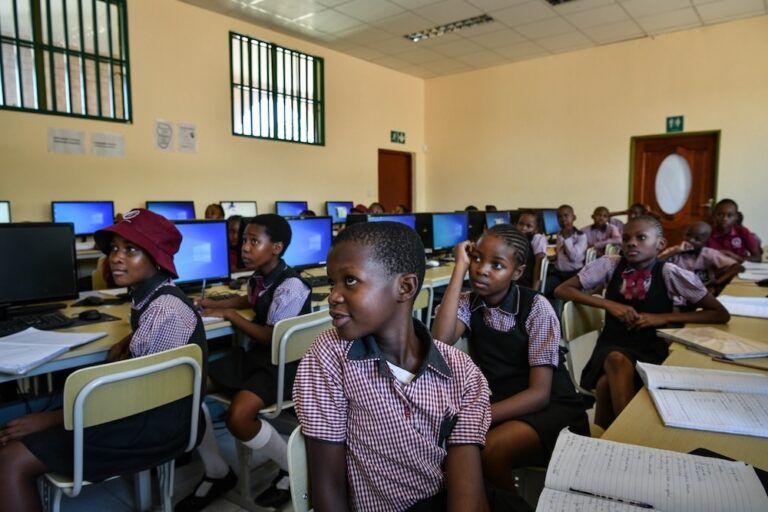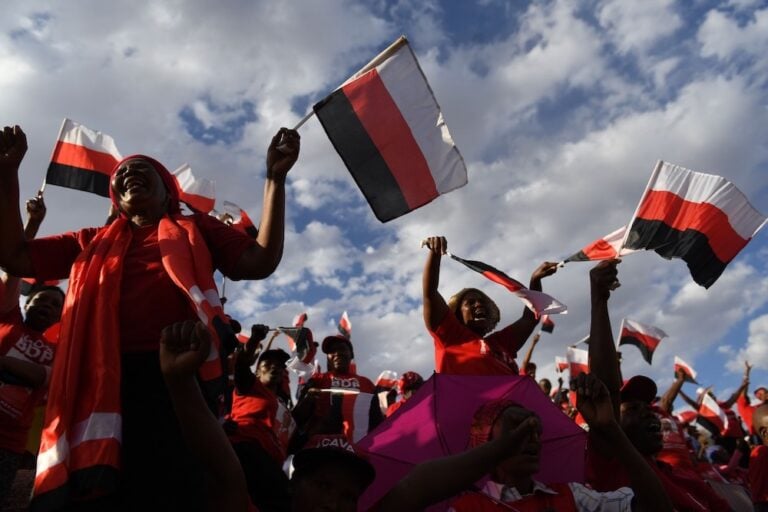The code of conduct would have gone a long way in enforcing equal coverage of political parties during elections, says MISA.
(MISA/IFEX) – MISA Botswana has learnt with grave concern that the National Broadcasting Board (NBB) has withdrawn the Code of Conduct for Broadcasters during elections because the Minister of Communications has not given the Code legal force, allegedly due to time constraints. MISA Botswana views this development as a cause for concern because the Code was aimed at leveling the playing field for political parties during elections. It is a well-known fact that political parties have persistently decried biased coverage especially from the state broadcasters, Botswana Television and Radio Botswana, and the code would have gone a long way in enforcing equitable coverage.
MISA Botswana is aware that the Code was drawn after extensive consultations between the NBB, the ministry, broadcasters and other stakeholders. MISA Botswana also notes that the ministry decided the Code was of no legal force only after the NBB made a ruling against the state media, Radio Botswana and Botswana Television for violating the Code by making a party political broadcast of the ruling Botswana Democratic Party.
MISA Botswana is therefore convinced that the broadcasting regulator withdrew the Code due to political interference. MISA Botswana finds it an anomaly that the Broadcasting Act gives the minister unfettered powers to appoint members of the board and to formulate regulations. This clearly has a bearing on the independence of the regulator and its ability to regulate broadcasting free from political pressures. The minister cannot be a player and referee at the same time. Regulation should never be in the hands of politicians as demonstrated by the current case.
International best practices and regional provisions such as the SADC ICT Declaration stipulate that governments and ministers should only concern themselves with formulating conducive policies and laws, and leave regulation to the professionals in independent regulatory bodies.
The International Telecommunications Union defines an independent regulator as one that is independent in terms of finance, structure and decision-making from the operators and the relevant government ministry. Its governors, the board, must also be representative and appointed in an open and transparent manner, and not by a politician. Clearly the current law and appointment procedures do not give the NBB independence and institutional autonomy.
MISA Botswana therefore calls for amendments to the broadcasting law so that the NBB becomes a true oversight institution for broadcasters in the country with the power to make and implement regulations and institute penalties even when the perpetrator is the state.
MISA Botswana further takes this opportunity to point out that the latest development bolsters our call for broadcasting reform to make Radio Botswana and Botswana Television public broadcasters and not state institutions. Staff at Radio Botswana and Botswana Television should be allowed to practice journalism and be governed by professional editorial codes, and not the civil service code as is current practice.
As international best practices dictate, government public relations and announcements are the prerogative of institutions created specifically for that purpose such as the Botswana Government Communications and Information System, and political parties also have their own communication systems and spokespersons. It is not the role of a public broadcaster to be a government or political party information and public relations organ.
Finally, MISA Botswana calls on all broadcasters to contribute to nurturing democracy in Botswana before and after these elections by providing fair and balanced coverage to all political parties in spite of the withdrawal of the Code.


